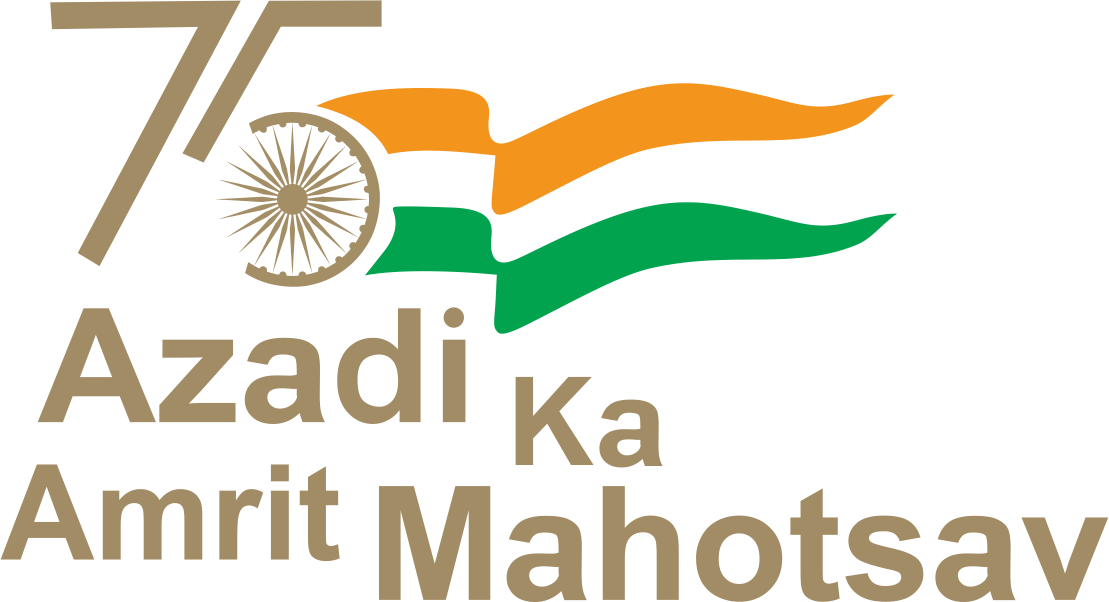- About Us
- Indian Spices
- Development
- Research
- Quality
-
Marketing
- Registration & Licensing
- Marketing Programmes
- Key Government scheme for spice exporters
- Trade Information
- International Regulation for Registration
- Spices Parks
- Spices & Spice Products
- e-Auction
- Indian Market / Trading Centers
- Export Support System
- Circulars from Marketing Department
- Collaborative Projects and Schemes
- Help Desk for Export
- TBT/SPS
- Publicity
- Notifications
- Contact Us
FAQ
Spices Board, the statutory organization constituted on 26th February 1987, under the Spices Board Act 1986 with the merger of the erstwhile Cardamom Board and Spices Export Promotion Council under the Ministry of Commerce & Industry, Government of India, is responsible for the export promotion of the 52 scheduled spices and development and research of cardamom (small and large). Spices Board is the flagship organization for the development and worldwide promotion of Indian spices. The Board has been spearheading activities for the excellence of Indian spices, so as to help the Indian spice industry in attaining the vision of becoming the international processing hub and premier supplier of clean and value added spices and herbs to the industrial, retail and food service segments of the global spices market.
The Spices Board is responsible for the overall development of cardamom (small and large) in terms of improving production, productivity and quality. The Board is also implementing post-harvest improvement programmes for improving quality of the 52 scheduled spices for export. The various development programmes and post-harvest quality improvement programmes of the Board are included under the head ‘Export Oriented Production’.
CRES stands for Certificate of Registration as Export of Spices. In case of export/import of Spices/Spice products, Certificate of Registration as Exporter of Spices issued by the Board is mandatory.
Kindly visit the Board's website https://www.indianspices.org.in/CRES_new/e-r-o/exporters-registration/form/Registration.php for information regarding CRES.
For any changes/modifications, the exporter should contact the nearest office of the board and there will be a fee of Rs. 5000+GST for each amendment/modification.
Yes, it is mandatory for all the exporters to submit the quaterly export returns regularly. The QER can be filled online.
For information regarding mandatory sampling, please visit https://indianspices.com/trade/trade-notifications/notificationdetails.html?id=192 and for more information, exporter may contact the nearest Quality Evaluation Lab of Spices Board.
All the registered exporters of the board will be provided with user ID & password. In case if user ID & password is not provided, please contact sampling.sb-ker@gov.in requesting to issue login and password based on their CRES number. Once after receiving the ID & password, you can do online filling of the intimation form by visiting www.indianspices.org.in
Please visit https://indianspices.com/marketing/auctioneer.html for Auctioner License and https://indianspices.com/marketing/dealer.html for dealer license.
The list of International Exhibition planned for the year is available on our website and interested exporters may contact publicity.sb-ker@gov.in for co-participation. Kindly visit https://indianspices.com/marketing/trade/trade-fairs.html for more information.
FTEB is a fortnightly publication for the benefit of exporters which reproduces the trade enquiries gathered from various sources. Circulation is only via online mode and the rate is Rs.600 per annum. For more details, contact Publicity Department, Phone: 91- 484-2333610- 616 E-mail: publicity.sb-ker@gov.in
Please visit https://indianspices.com/training-calendar.html.
Please visit https://www.indianspices.org.in/CRES_new/e-r-o/exporters-registration/form/pre.pdf
A merchant exporter is a business entity or individual involved in the export of spices to foreign markets. They purchase goods from domestic manufactures or suppliers and then export these products to overseas buyers.
A manufacturer exporter is a company or entity engaged in the process of producing spice products from raw materials, semi finished goods into finished products and then export these products to overseas buyers
Please visit https://www.indianspices.com/sites/default/files/Export_Development_Promotion.pdf
Please contact your nearest spices Board office. For details of officer please visit https://indianspices.com/trade/trade-notifications/notificationdetails.html?id=203
Please visit https://www.indianspices.com/export/major-itemwise-export.html and https://www.indianspices.com/marketing/import.html
Spices Board, the statutory organization constituted on 26th February 1987, under the Spices Board Act 1986 with the merger of the erstwhile Cardamom Board and Spices Export Promotion Council under the Ministry of Commerce & Industry, Government of India, is responsible for the export promotion of the 52 scheduled spices and development and research of cardamom (small and large). Spices Board is the flagship organization for the development and worldwide promotion of Indian spices. The Board has been spearheading activities for the excellence of Indian spices, so as to help the Indian spice industry in attaining the vision of becoming the international processing hub and premier supplier of clean and value added spices and herbs to the industrial, retail and food service segments of the global spices market.
The Spices Board is responsible for the overall development of cardamom (small and large) in terms of improving production, productivity and quality. The Board is also implementing post-harvest improvement programmes for improving quality of the 52 scheduled spices for export. The various development programmes and post-harvest quality improvement programmes of the Board are included under the head ‘Export Oriented Production’.
During 2021-22 to 2025-26, Board will be providing assistance for planting material production, replanting and irrigation facilities to cardamom (small & large); supply of postharvest improvement equipments, promotion of organic farming, production of exportable spices in NE Region, support for FPOs for post-harvest and quality improvement of spices, promotion of innovations in spices sector, establishment of basic quality testing device at field level, insurance for cardamom (small). For specific details please visit the link for more details.
Aadhar Card, Land Tax Receipt/ Parcha/RTC/Chitta adangal/Pani of the plantation, Bank Passbook and other relevent supporting documents specific to schemes in the regions concerned. Kindly contact our nearby field office to get more information.
Contact the Officer in charge of the respective Office of Spices Board for getting the details and Boards offices can be located by visiting the link For any guidance Head Office, Spices Board, Kochi, Kerala also can be contacted.
Kindly visit the following link for more details
Kindly visit the link for more details
Malabar Pepper, Coorg Green Cardamom, Allepy Green
Cardamom, Naga Mirchi, Guntur Sannam Chilli, Byadgi
Chilli, Sikkim Large cardamom, Mizo chilli, Assam
Karbianglong Ginger, Waigon turmeric, Kandhamal
Haldi, Uttarakhand Tezpat, Bhiwapur Chilli, Kashmir
Saffron and Sirarakhong chilli, Dalle Kurchani and
Kanniyakumari Clove.
Out of these Malabar Pepper, Coorg Green Cardamom,
Alleppey Green Cardamom, Guntur Sannam Chilli and
Byadagi Chiili are registered under the
proprietorship of Spices Board.
Large cardamom, Chilli, Ginger, Turmeric, Cinnamon and Black pepper
Kindly visit the link for details.
The process of ensuring the safety and quality of consignments of spices for the specified parameters before the export.
The spices for mandatory inspection are selected based on the occurrence of rejections or alerts on food safety and quality of spices in the international market and the agreements with importing countries
The parameters for mandatory inspection are selected based on the occurrence of rejections or alerts on food safety and quality of spices in the international market and the agreements with importing countries.
All the QELs are equipped with state of art facilities and follow methods of analysis on par with international standards. The technical staff is well trained in the latest advancement in the field to ensure continuous improvement. The QELs are ISO 17025 (NABL) acreditted and constantly take part in national and international interlaboratory check sample programs and proficiency testing programs to self-assess the quality of analytical service.
Being a regulatory body, the laboratories do not involve in any spice business. The laboratories have well-defined policies and an internal mechanism of coding/decoding in place to ensure confidentiality and impartiality in the process of analysis.
Kindly visit www.indianspices.com (Quality – Analytical Services and Fee)
Kindly visit www.indianspices.com (Quality – Analytical Services and Fee)
Kindly visit www.indianspices.com (Quality – Analytical Services and Fee)
Kindly visit www.indianspices.com (Quality- Quality Evaluation Laboratory)
Training organized for Exporters and Students from Universities and Colleges based on the request and number of candidates applied for.
Kindly visit www.indianspices.com (Quality- Quality Evaluation Laboratory)
The customer/Exporter has to contact the corresponding EPO/AD/DD of the Marketing office attached to Lab.
Please refer Spices Board, Circular No 19/2020 dated 31st December 2020, https://www.indianspices.com/indianspices/trade/trade-notifications/notificationdetails.html?id=192
The Technical Competency and Test report's Reliability and Accuracy is assessed by an Independent Accreditation body which is accredited internationally and hence the report generated by the Lab with ISO/IEC 17025 Accreditation is accepted world wide.
No,since the lab is testing only Spices &Spices products which are in dried form,is only accepted for testing.
Kindly visit www.indianspices.com (Quality – Analytical Services and Fee-Note part and samples for Microbiological testing to be send in aseptic,clean and sterile pouches/containeers)
For Physical and Chemical testing parameters,one sample and for Microbiology sample analysis,aseptically packed sample as per sample size shown in the Form 75 under Analytical service of QUALITY from www.indianspices.com may be referred.
Kindly visit our website https://www.indianspices.org.in/CRES_new/e-r-o/exporters-registration/form/Registration.php.
Kindly visit https://www.indianspices.com/analytical-services-fees.html
Contact respective Sample Reciept Desk.
After completing the analysis email communication will be sent , if email address is not updated please contact respective QEL/SRD for further guidance
Time duration will vary with parameter, for more details please visit https://www.indianspices.com/analytical-services-fees.html
The main objective of Research at Indian Cardamom Research Institute (ICRI) is to increase the productivity and improve the quality of cardamom (both small & large) which would thereby help in meeting the export demand thus enhancing the net income of spice farmers. Research is mainly focused on small cardamom growing tracts of Kerala, Karnataka and Tamil Nadu as well as large cardamom growing regions of North East States including Kalimpong and Darjeeling districts of West Bengal.
Major areas of research are Crop Improvement, Biotechnology, Crop Production & Management, and Crop Protection & Transfer of Technology. Crop Improvement programmes consist of germplasm conservation, varietal improvement through selection & hybridisation.
1.Bio agent production 2.Planting material distribution 3.Spice Clinics 4.Soil test based advisory services 5.Scientific crop advisory Services 6.Short term training programmes 7.Weather forecasting services to stakeholders
Soil samples received from the cardamom growers will be analysed for all major, secondary, micro nutrients and pH and the soil health card which include fertiliser recommendation will be given. This service is provided free of cost for the benefit of cardamom growers
Supply of quality planting materials of cardamom and black pepper is provided to the farmers. On demand from farmers. Cardamom suckers are supplied during May to September. Cardamom seeds are supplied during August to October. Cardamom seedlings are supplied during March to May Black Pepper are supplied during June to November
Kerala. 1. Cardamom: Rs.50/- persucker 2.. Black Pepper: Specific Varieties – Rs.15/- per plant Karnataka 1.Cardamom seeds (for Karnataka): Rs.5000/Kg 2. Cardamom seeds scarification Rs.60/Kg 3.Cardamom seedlings –Rs.15/- per Seedling 4. Black Pepper: Rs.15/- per rooted cutting
1. Cardamom production technology. 2. EPN Production and application technology 3.Production and usage of Bioagents (Trichoderma and Pseudomonas)
Yes.The fees towards internship for UG/ PG students (1 month) is Rs 3000/-
Yes. The fees towards doing project for PG Students at ICRI for 3 months is Rs.5000/- (For Biotech the rate is Rs.7500/-). The fees towards doing project for 6 months are Rs. 7500/- (For Biotech students the rate is Rs.10,000/-).
Capsule rot and rhizome rot diseases
This disease can be controlled by following methods; 1. Shade regulation before onset of monsoon 2.Trashing of the plants 3. Avoid stagnation of water in the plant base 4.Spraying of 1%Bordeaux Mixture and drenching of copper oxy chloride 0.2 % (20 gram in 100 liters of water)
Katte, Nilgiri necrosis and Kokke Kandu
Trichoderma harzianum, Pseudomonas fluorescence, Bacillus subtilis are the bioagents used for management of rot diseases in small cardamom.
The Fusarium disease will occur in the post monsoon and up to the end of summer months. This disease can be controlled by following methods 1. After monsoon season soil work may undertaken 2. Cover the exposed root with top soil 3. Proper mulch can be provided 4.Proper irrigation may be given wherever necessary5. Provide adequate shade wherever required
Thrips, Capsule and Shoot borer
Quinalphos, Difenthiuron and Lambda cyhalothrin
Application of Entomo Pathogenic Nematode (EPN) multiplied around the plant base in each plant will effectively control root grub incidence in small cardamom
Rosette appearance in the leaf, leathery and narrow leaf, poor growth performance in the tillers and appearing of the node in the roots are the symptoms of nematode infestation in small cardamom





